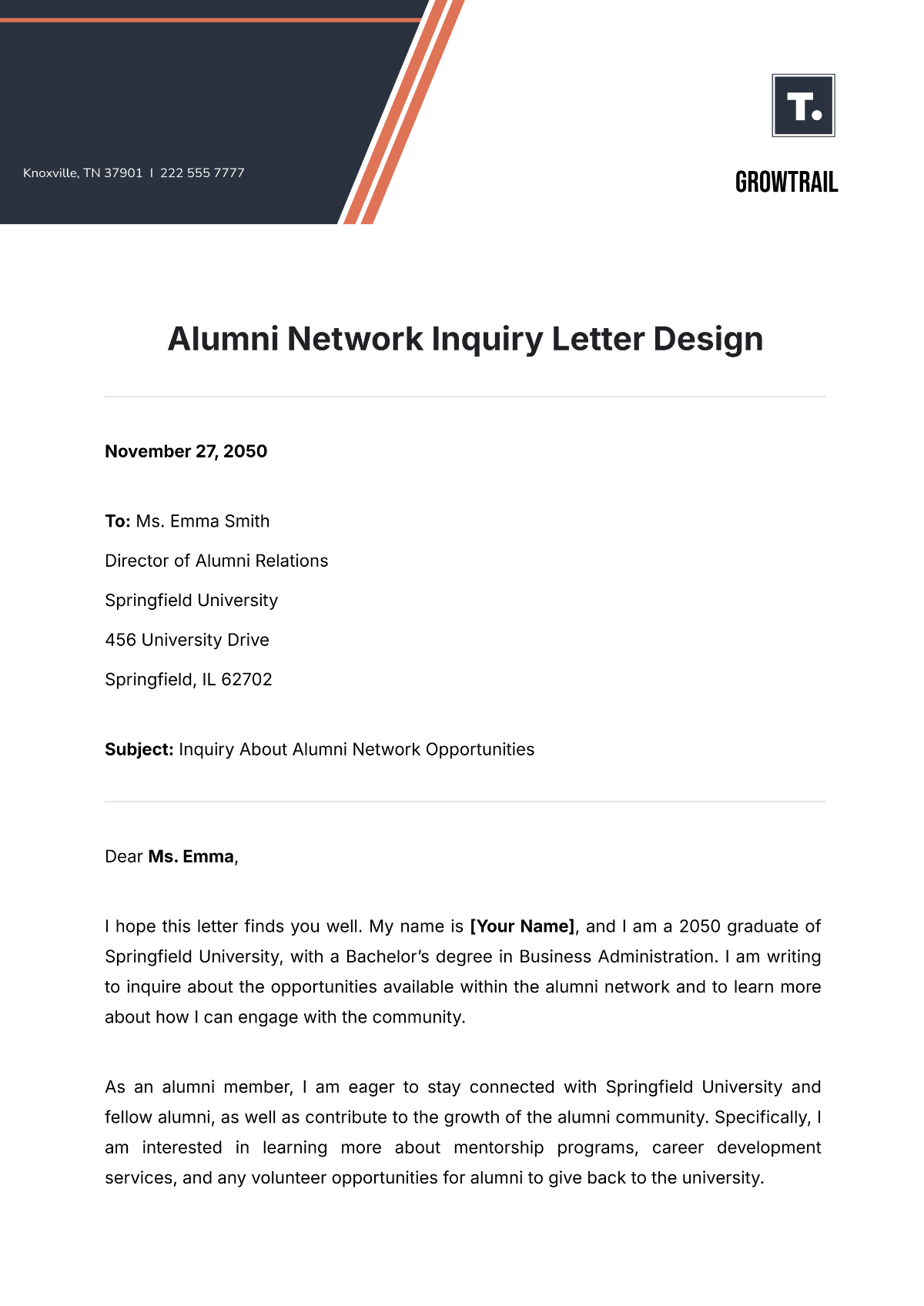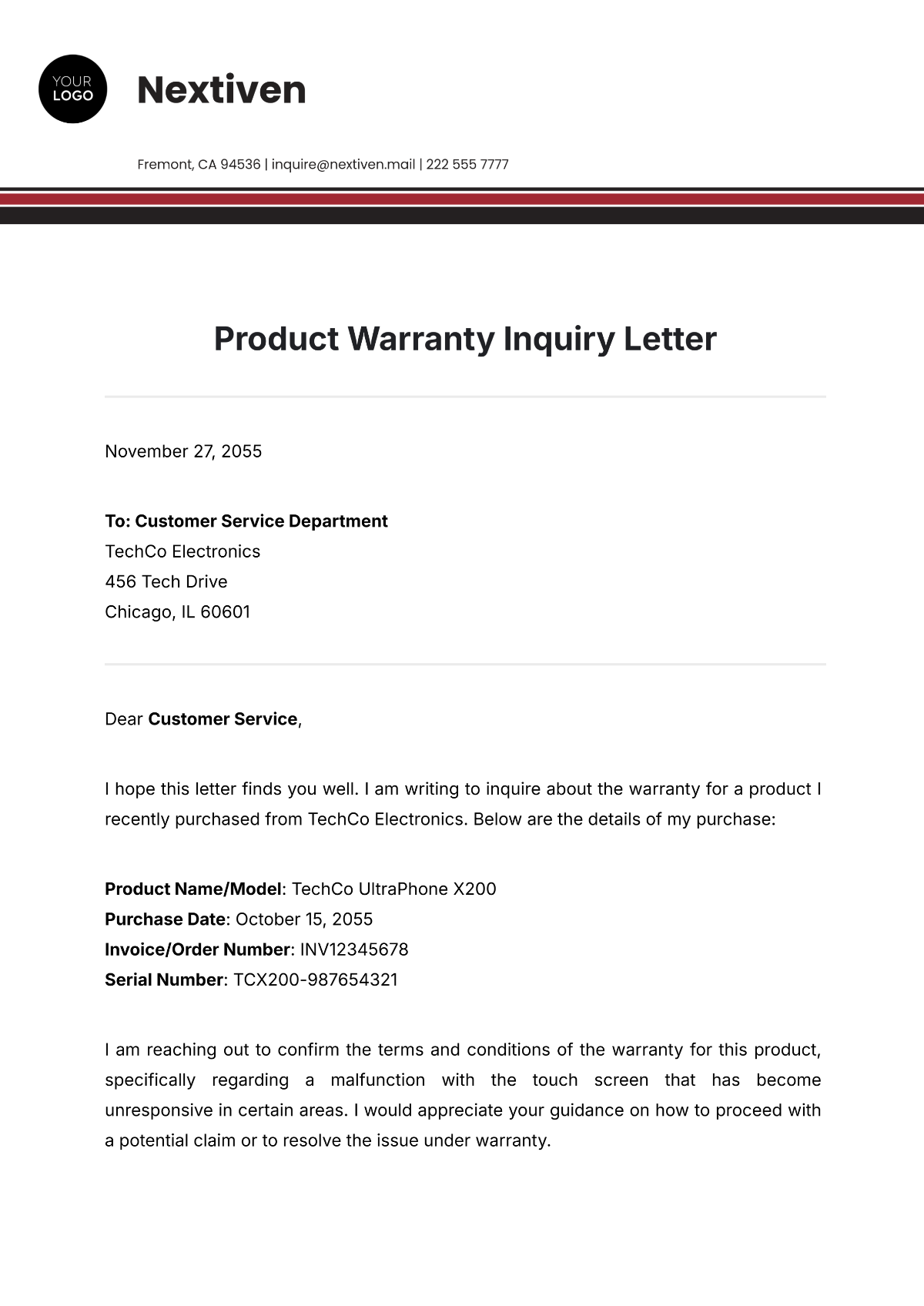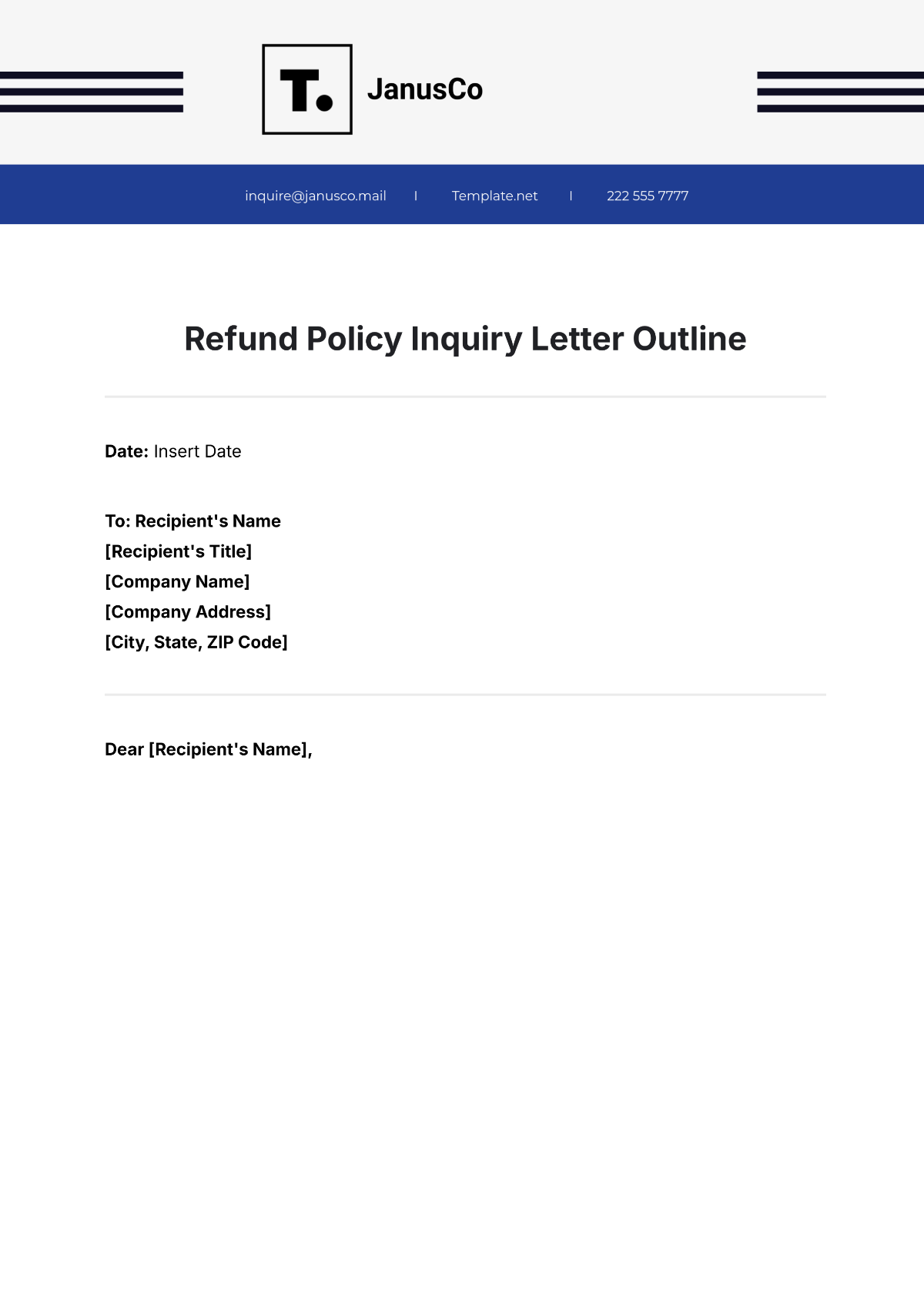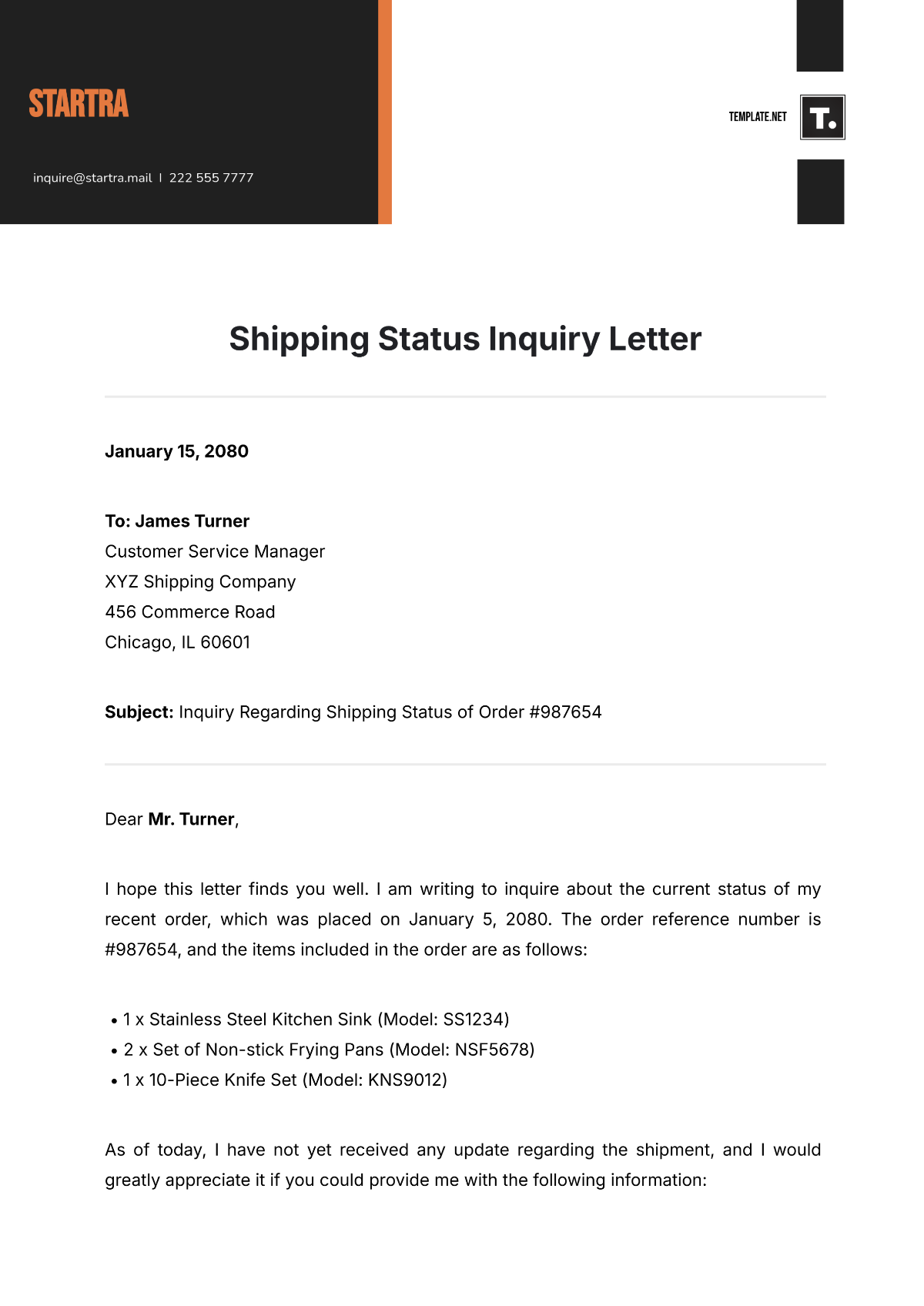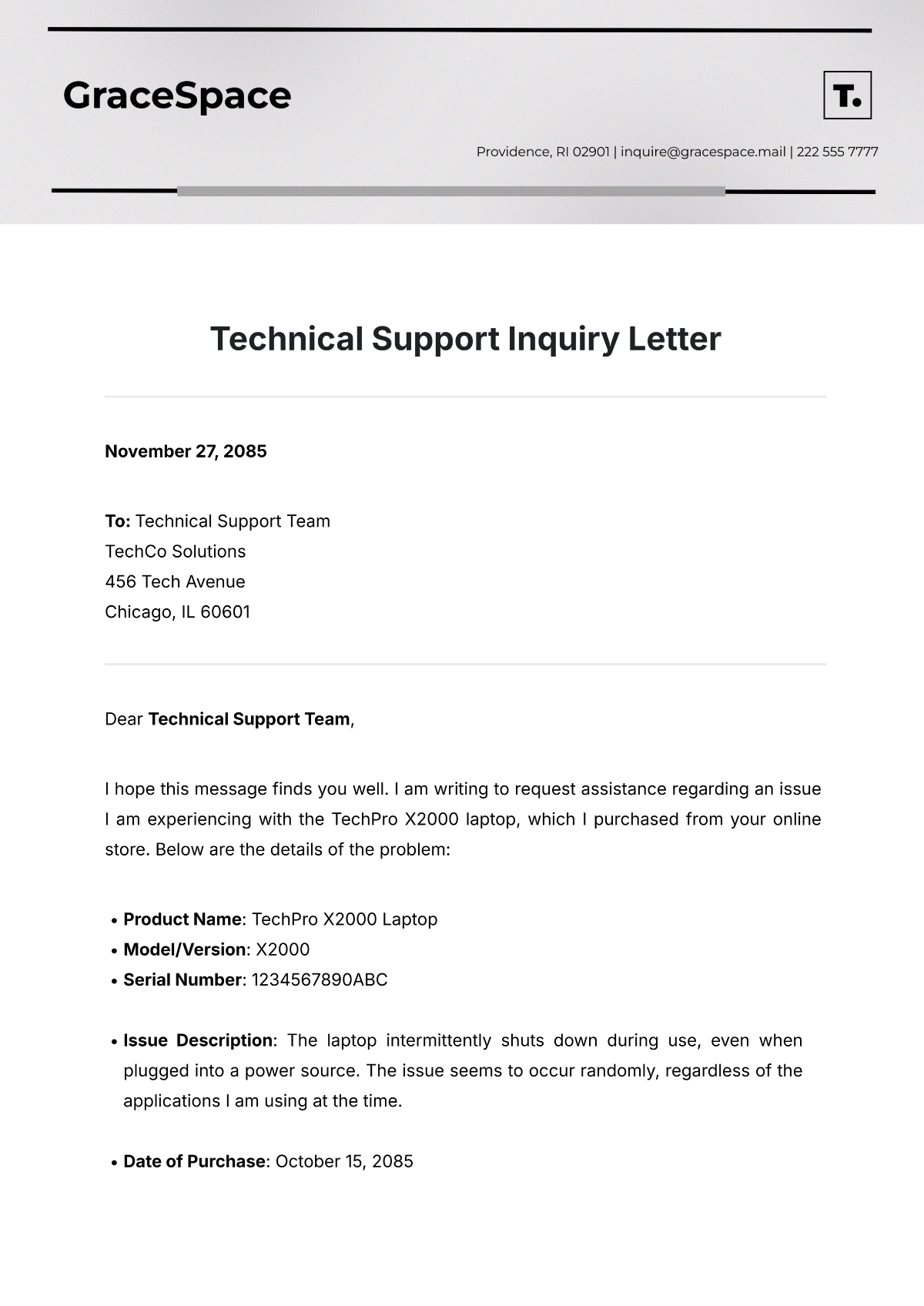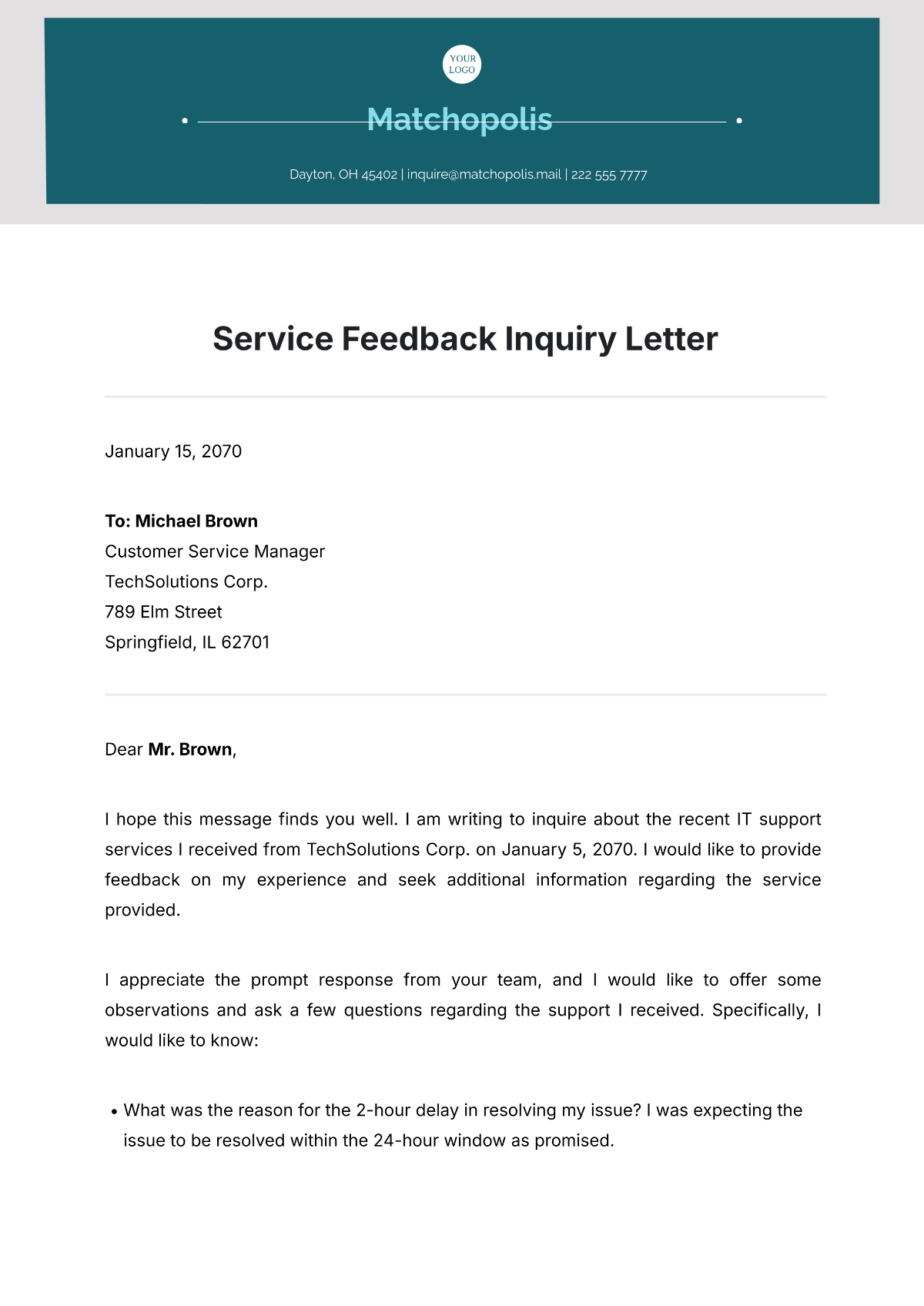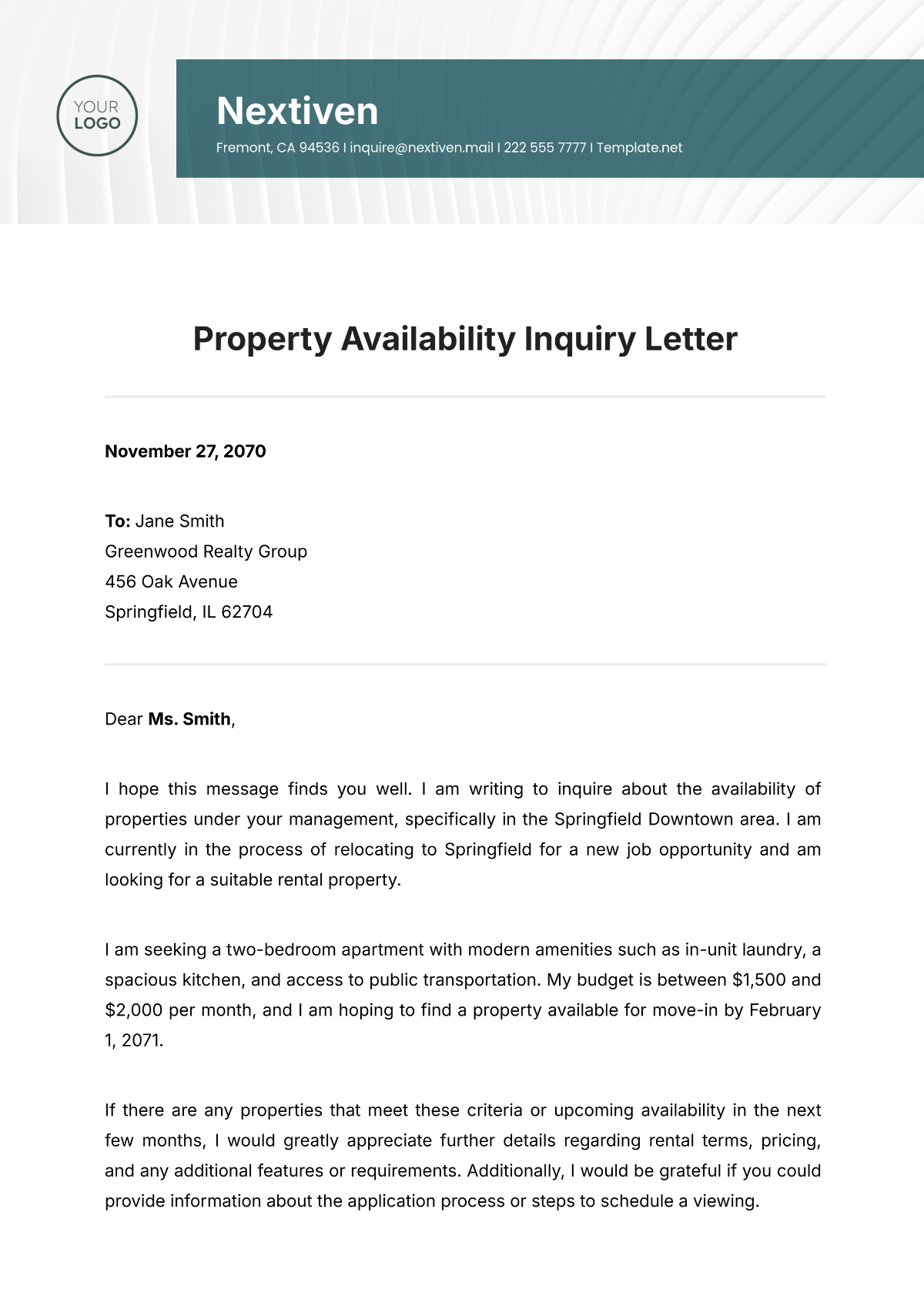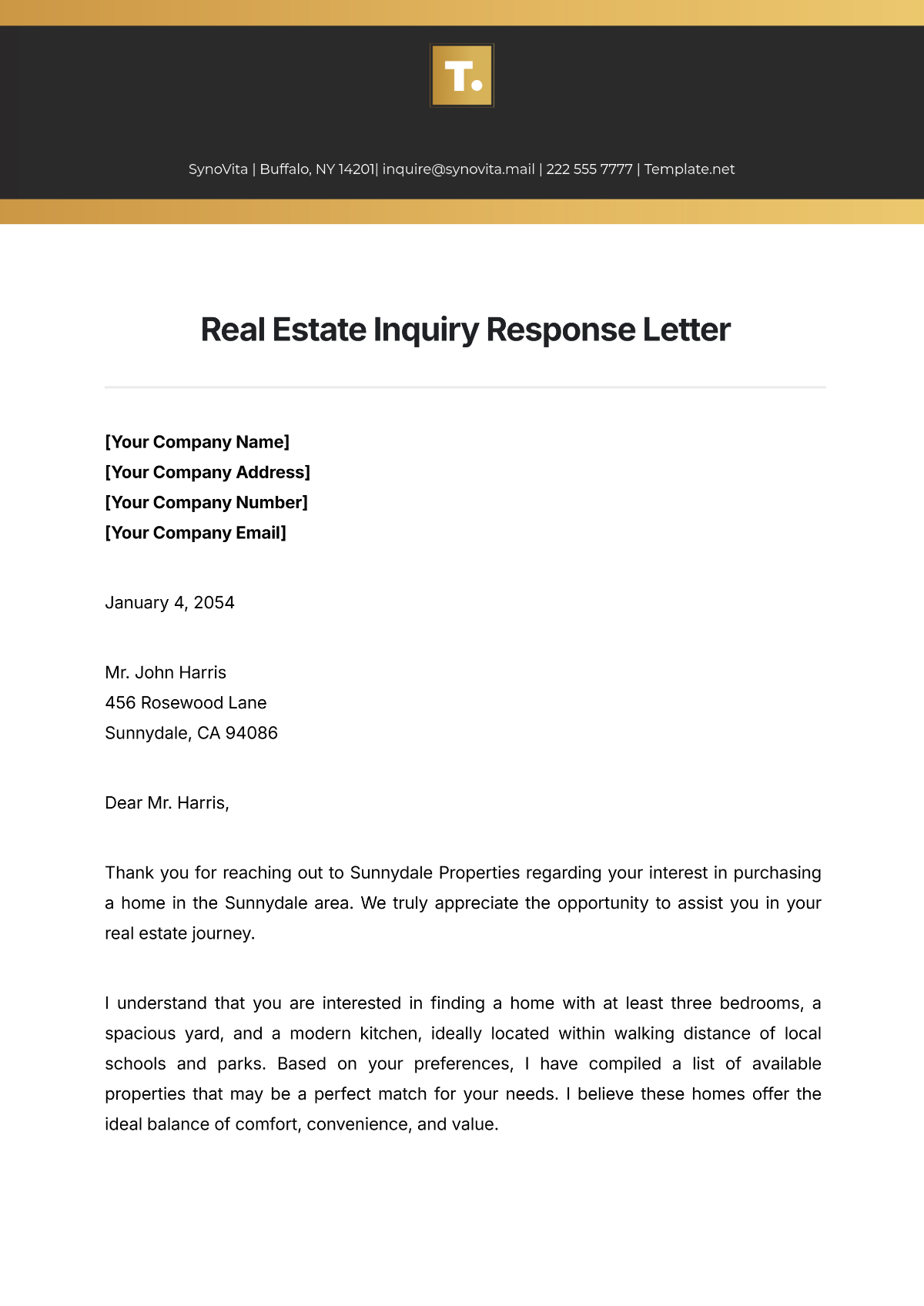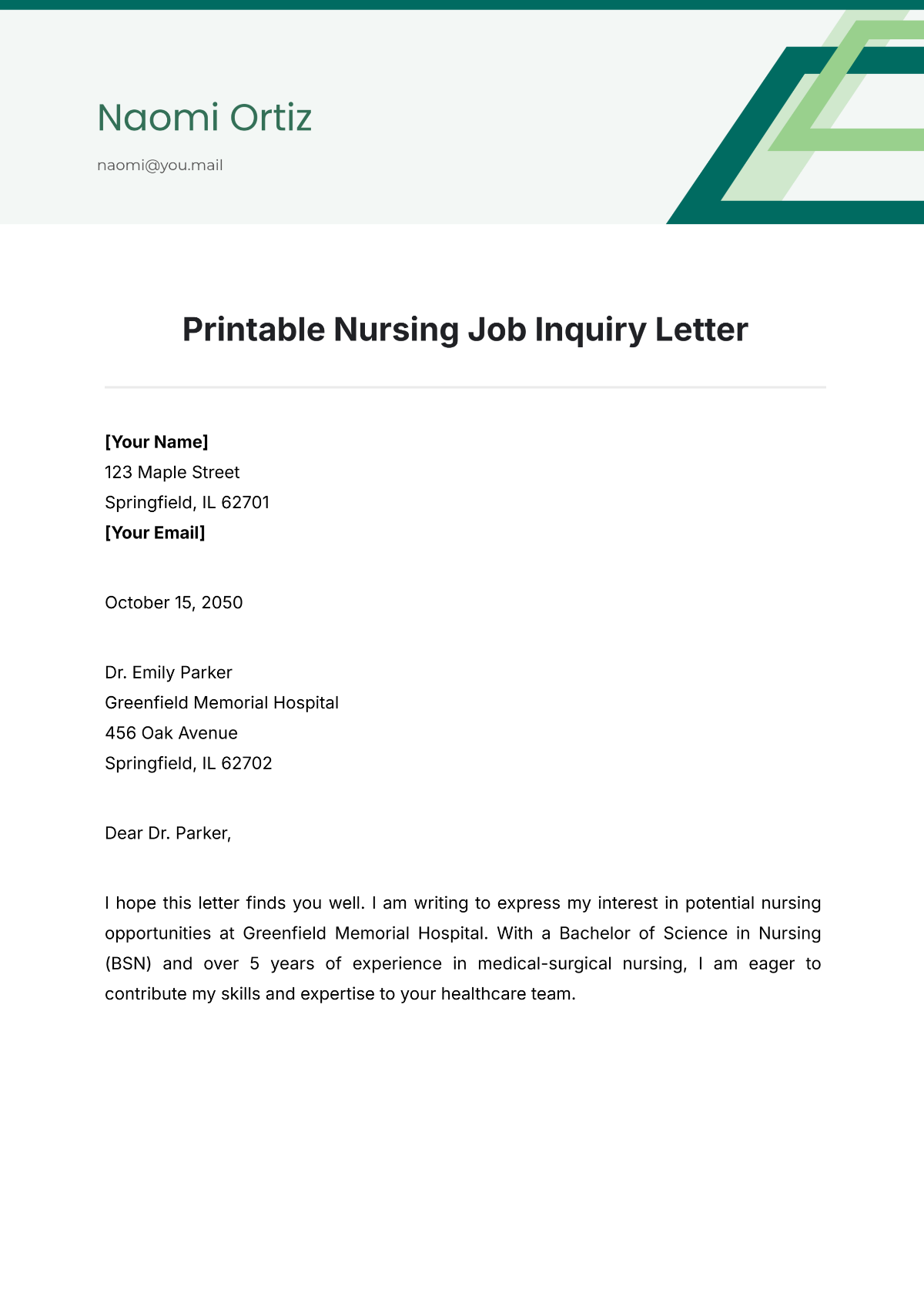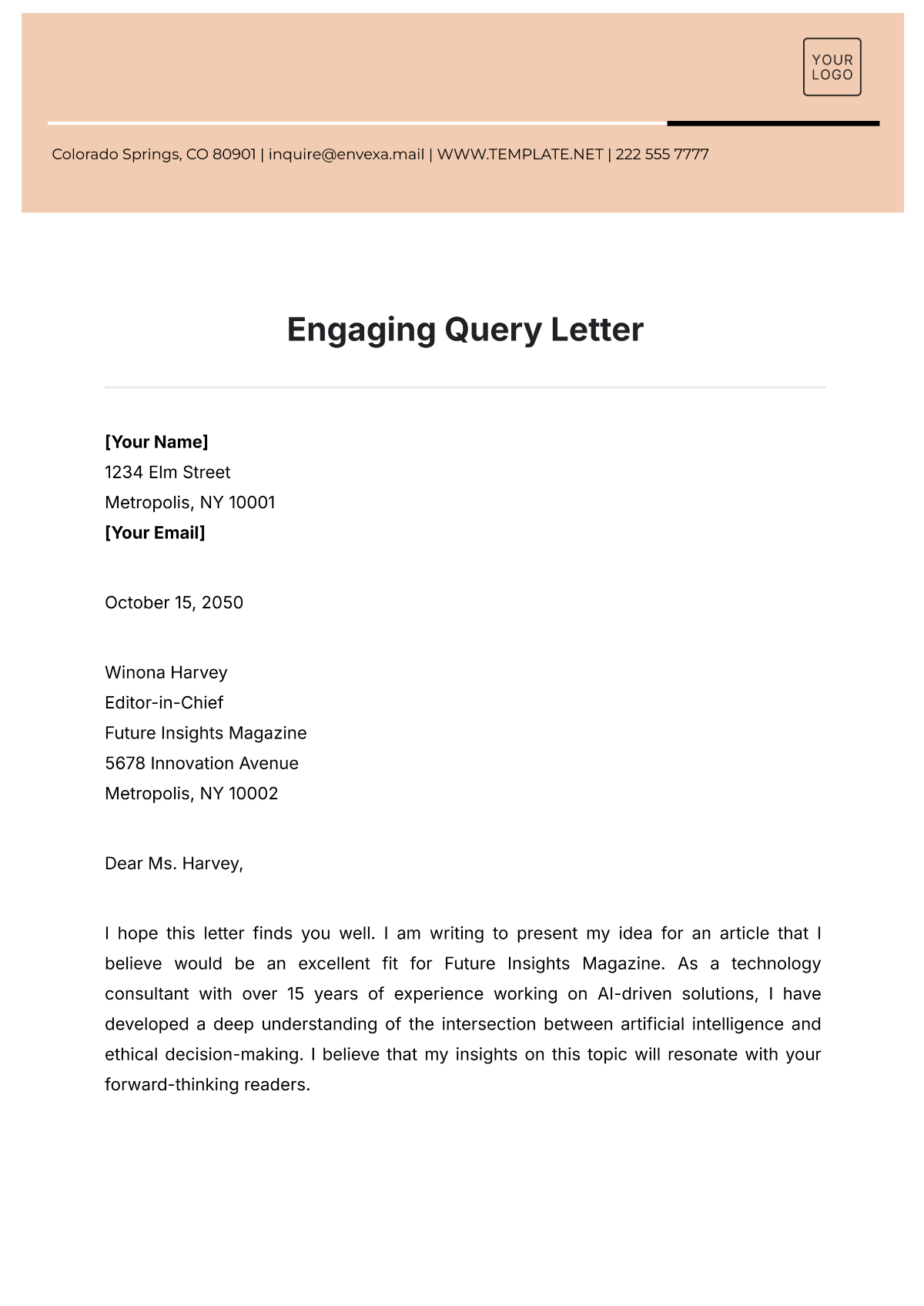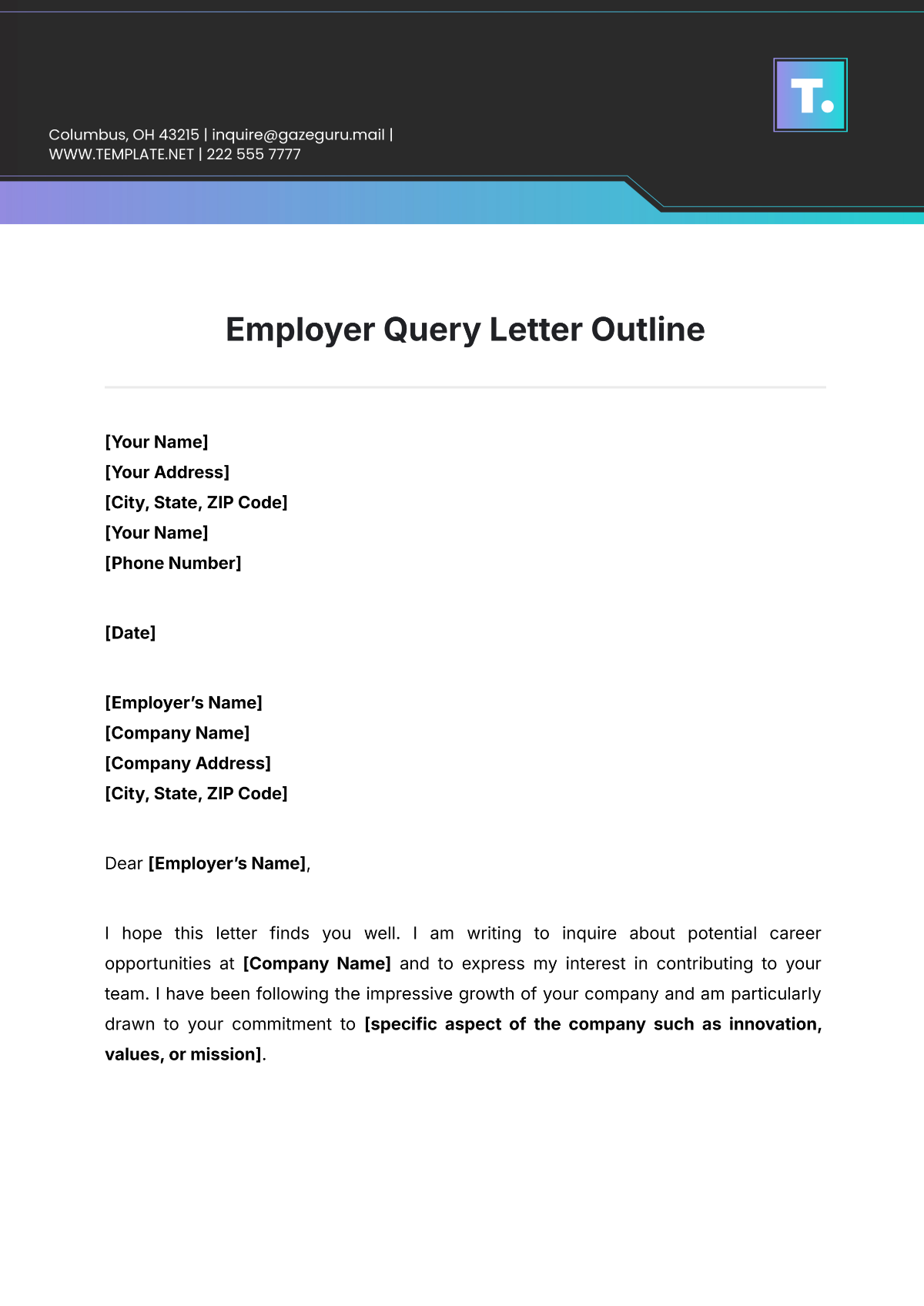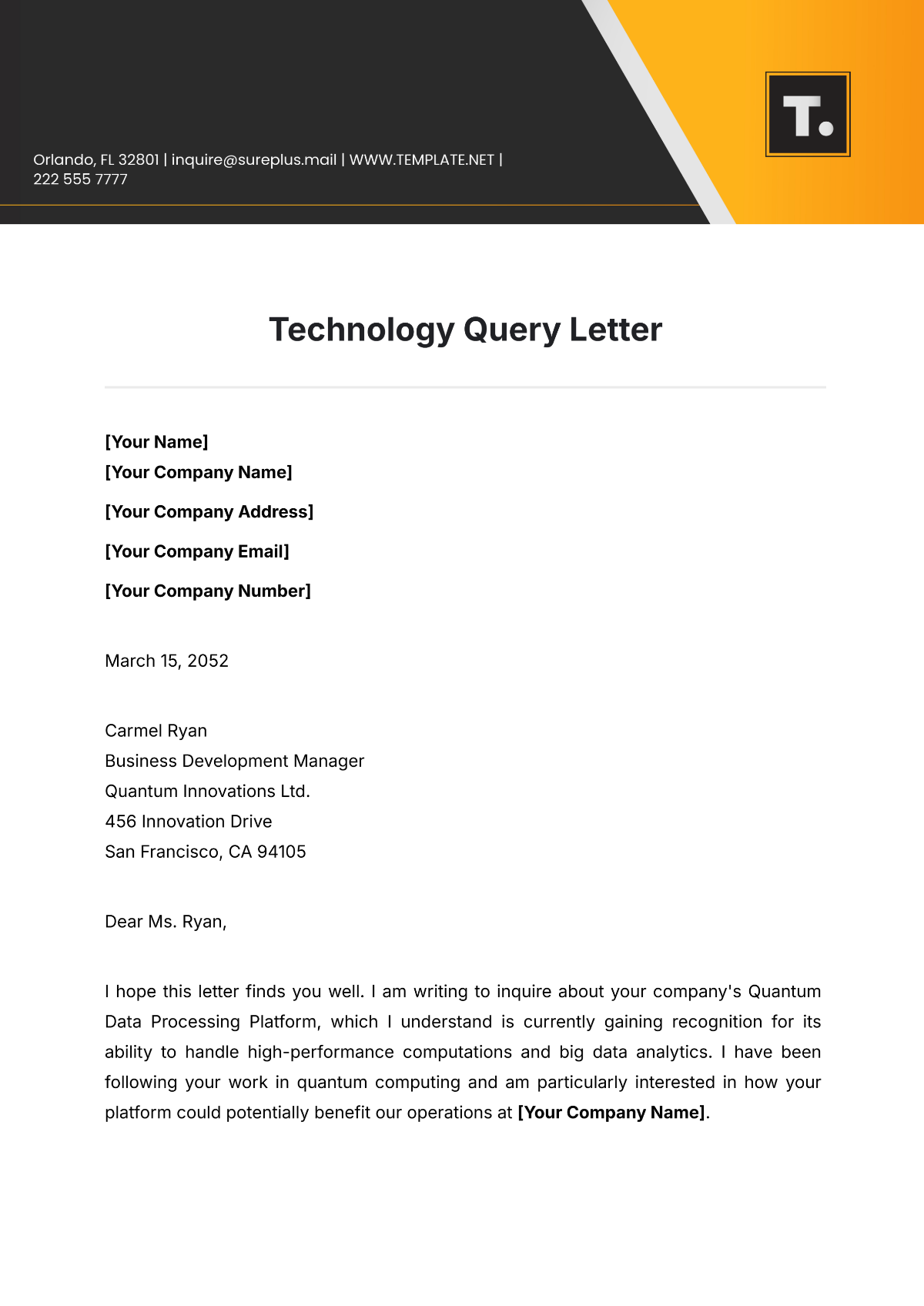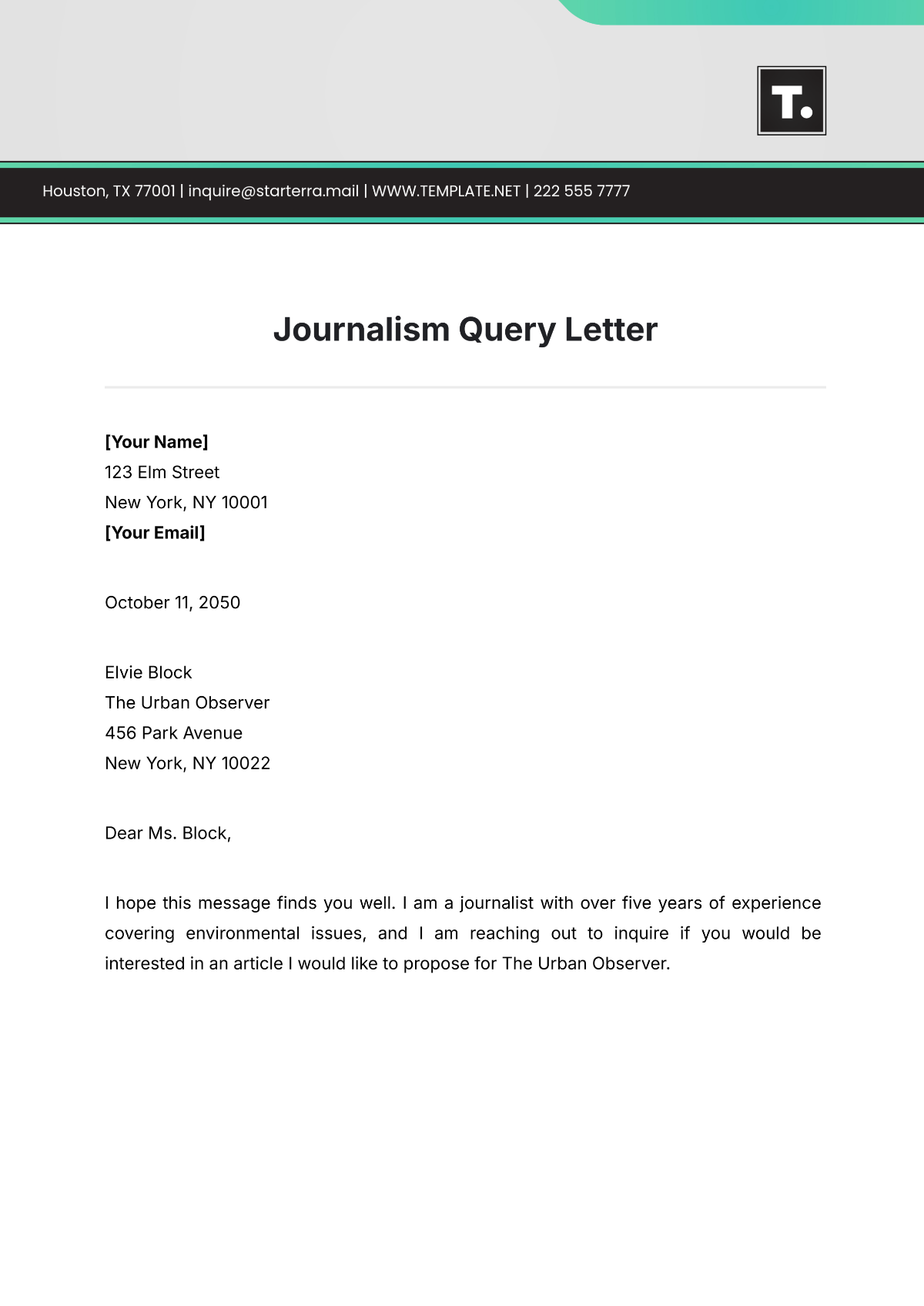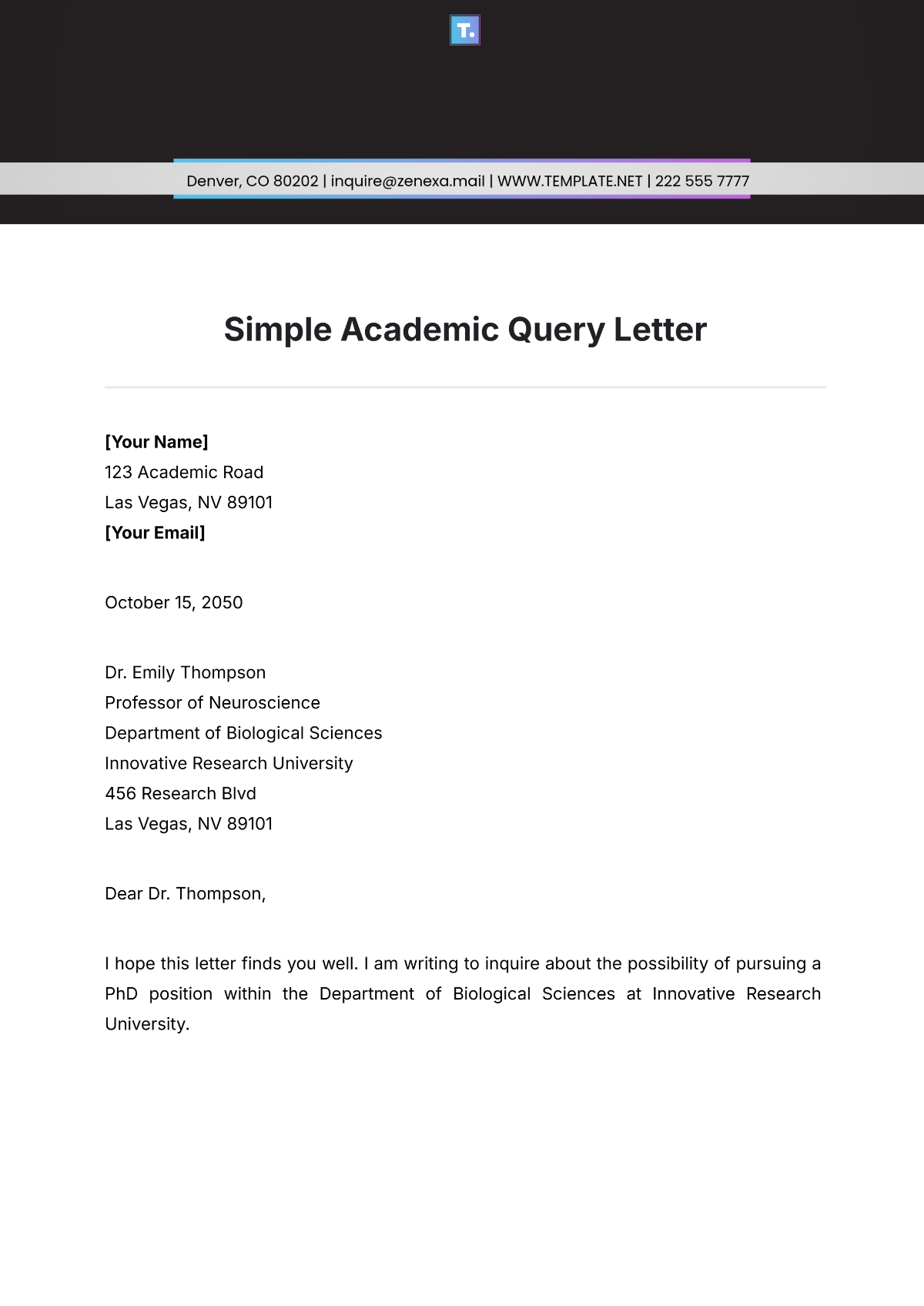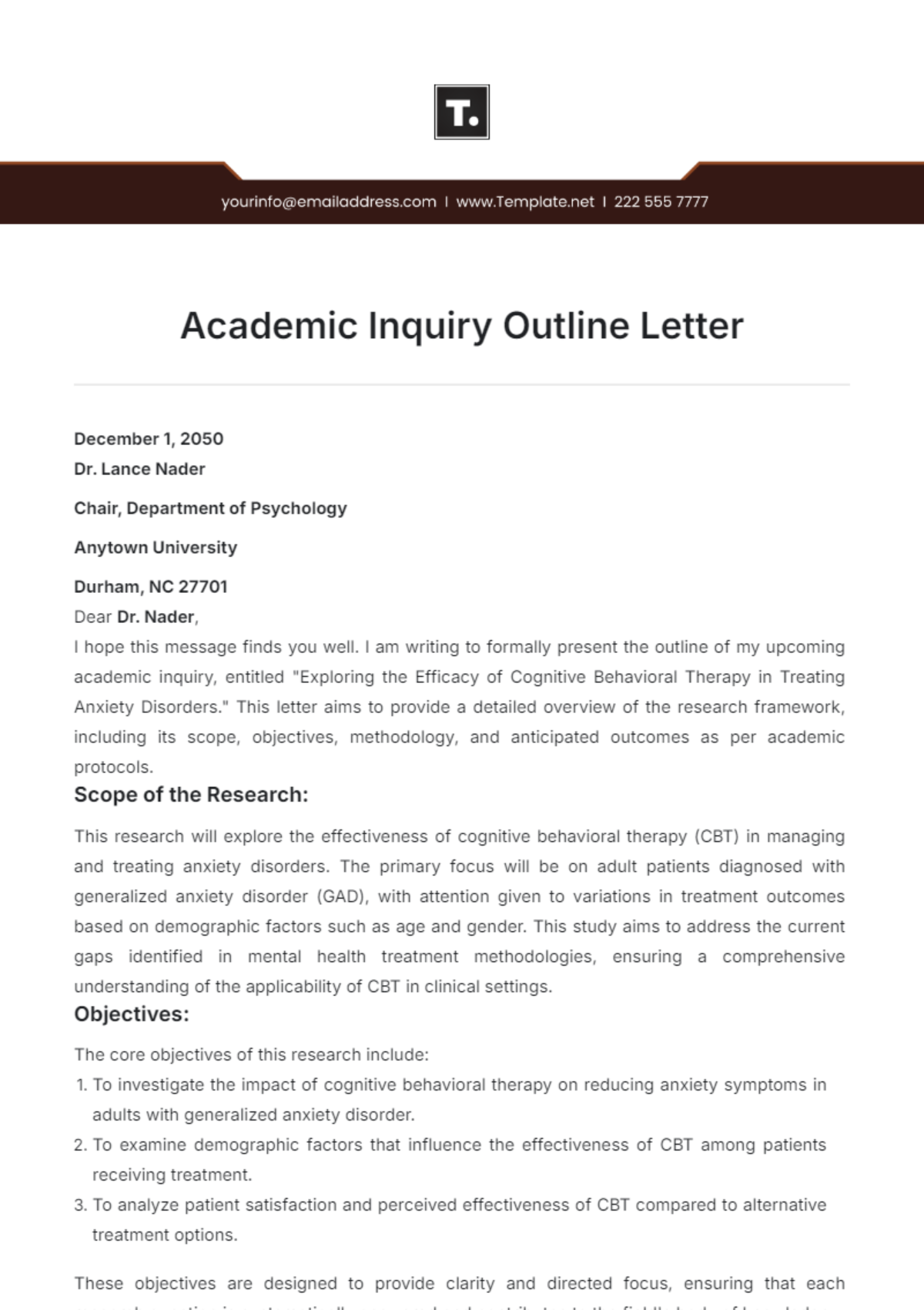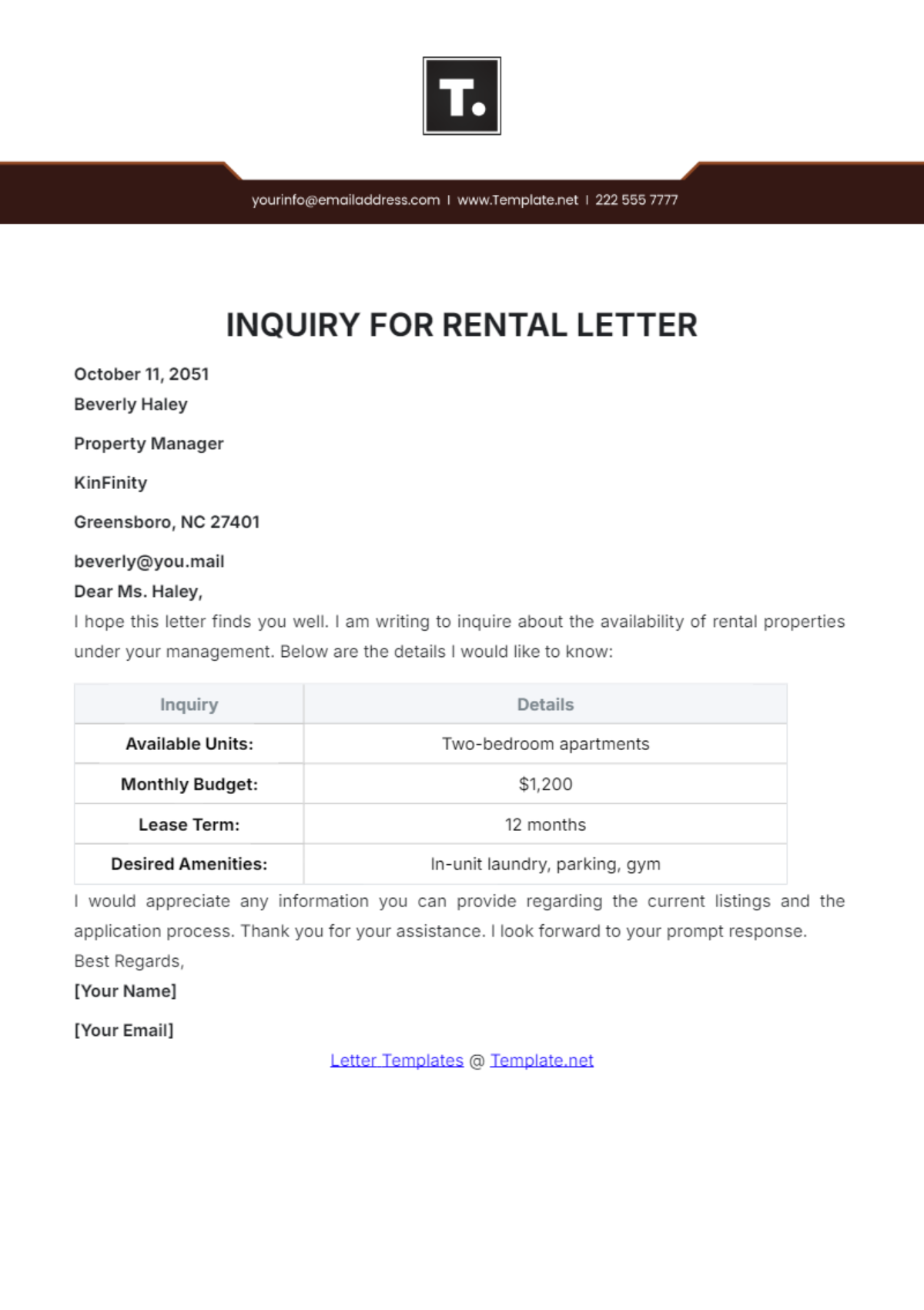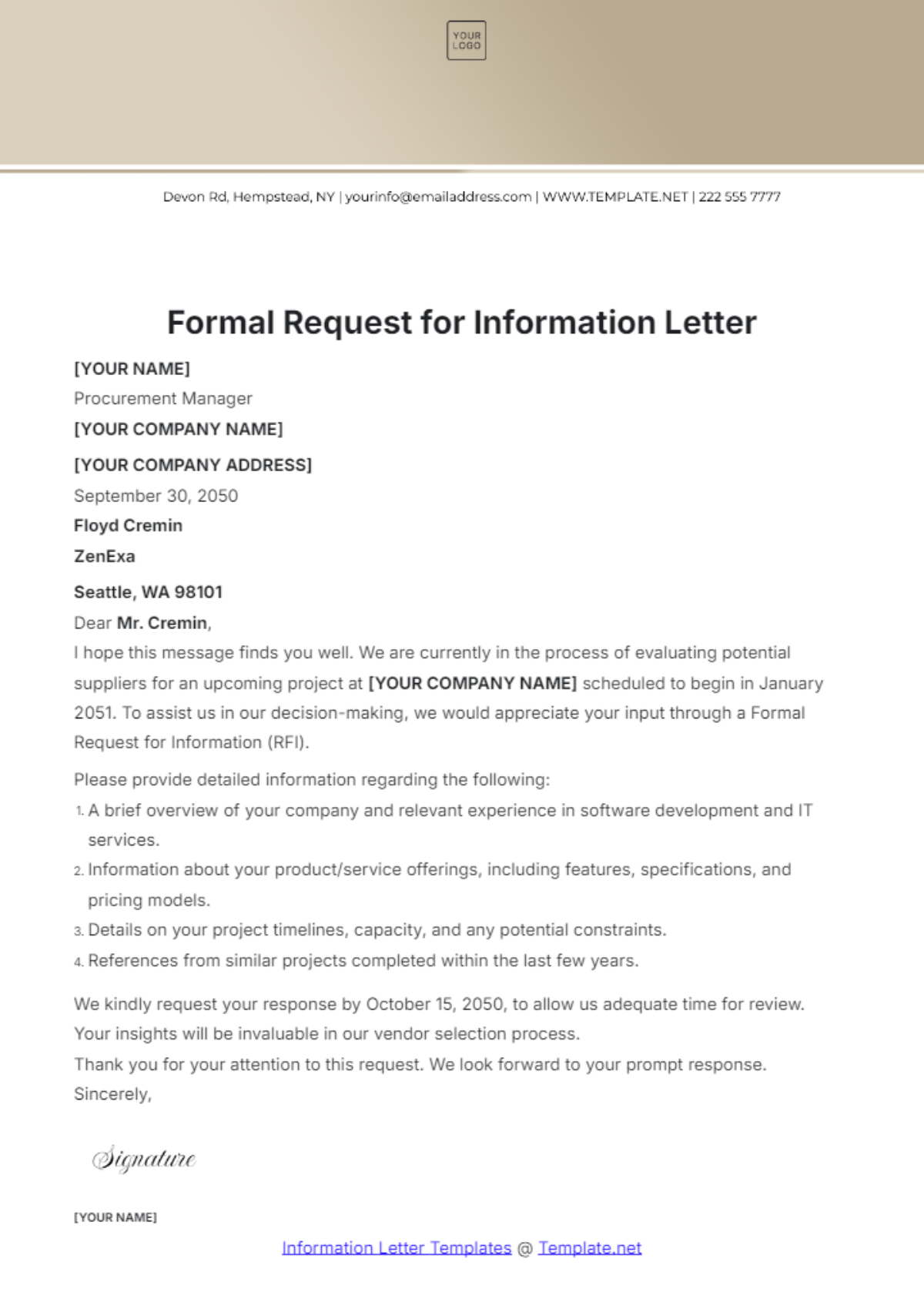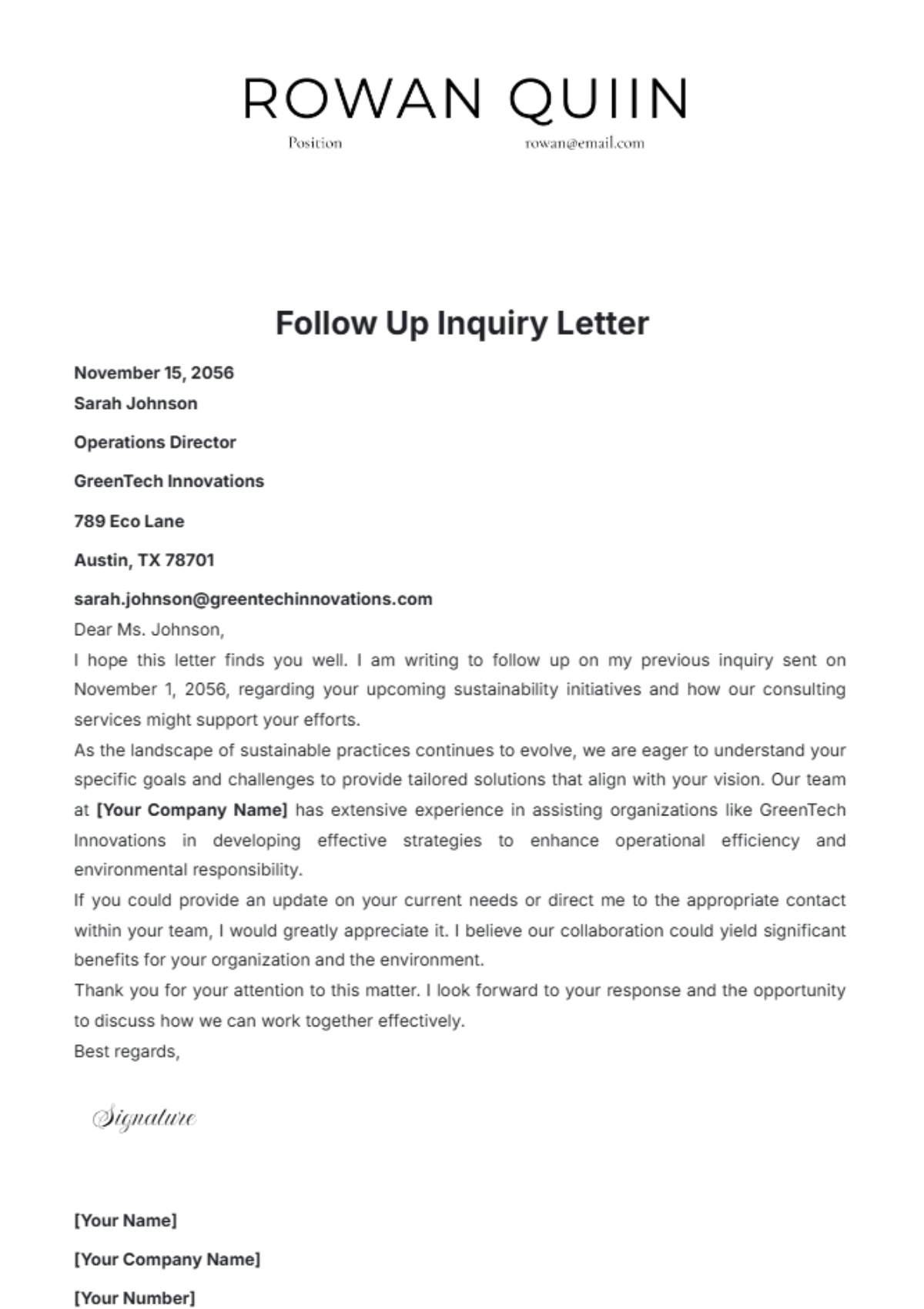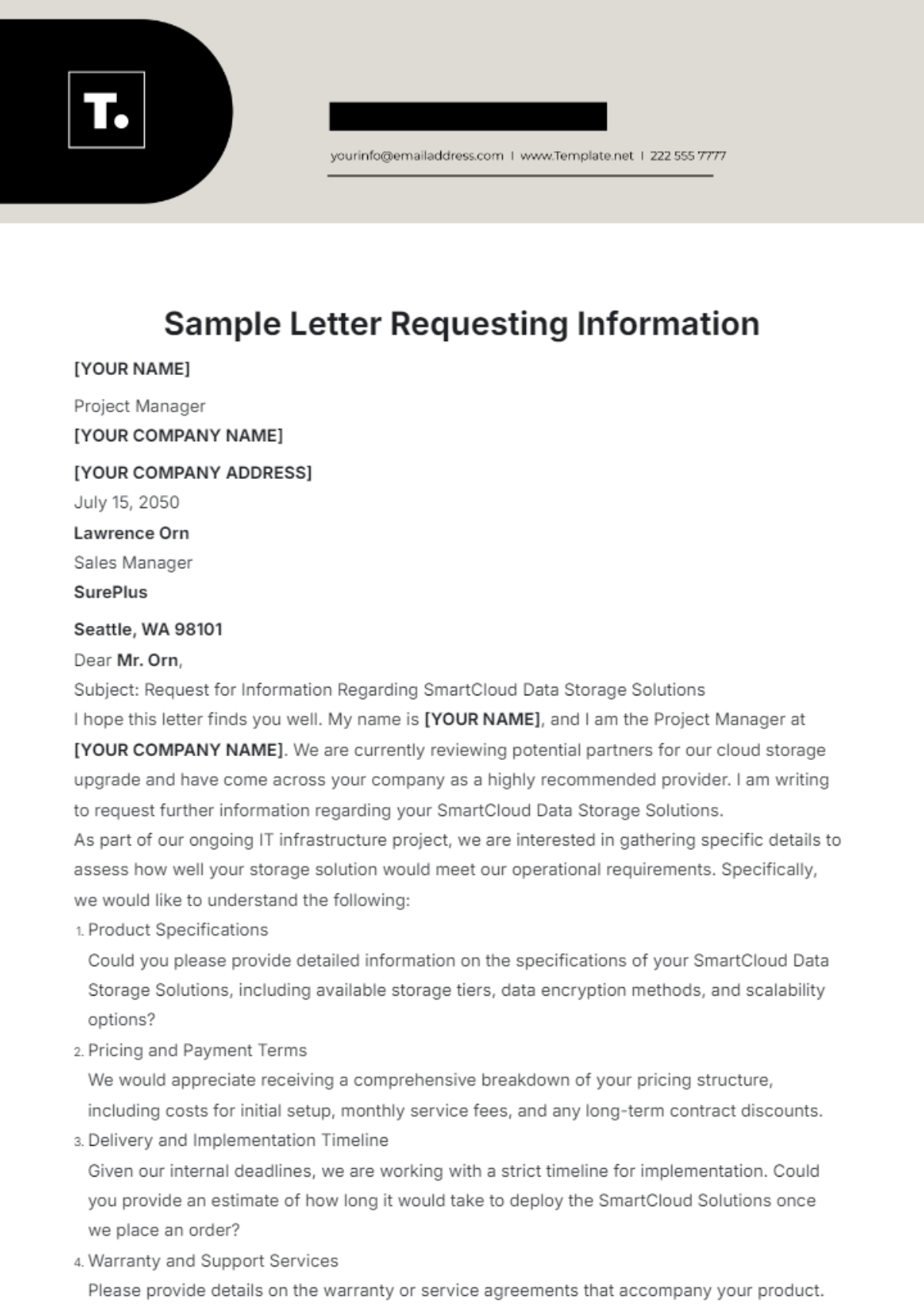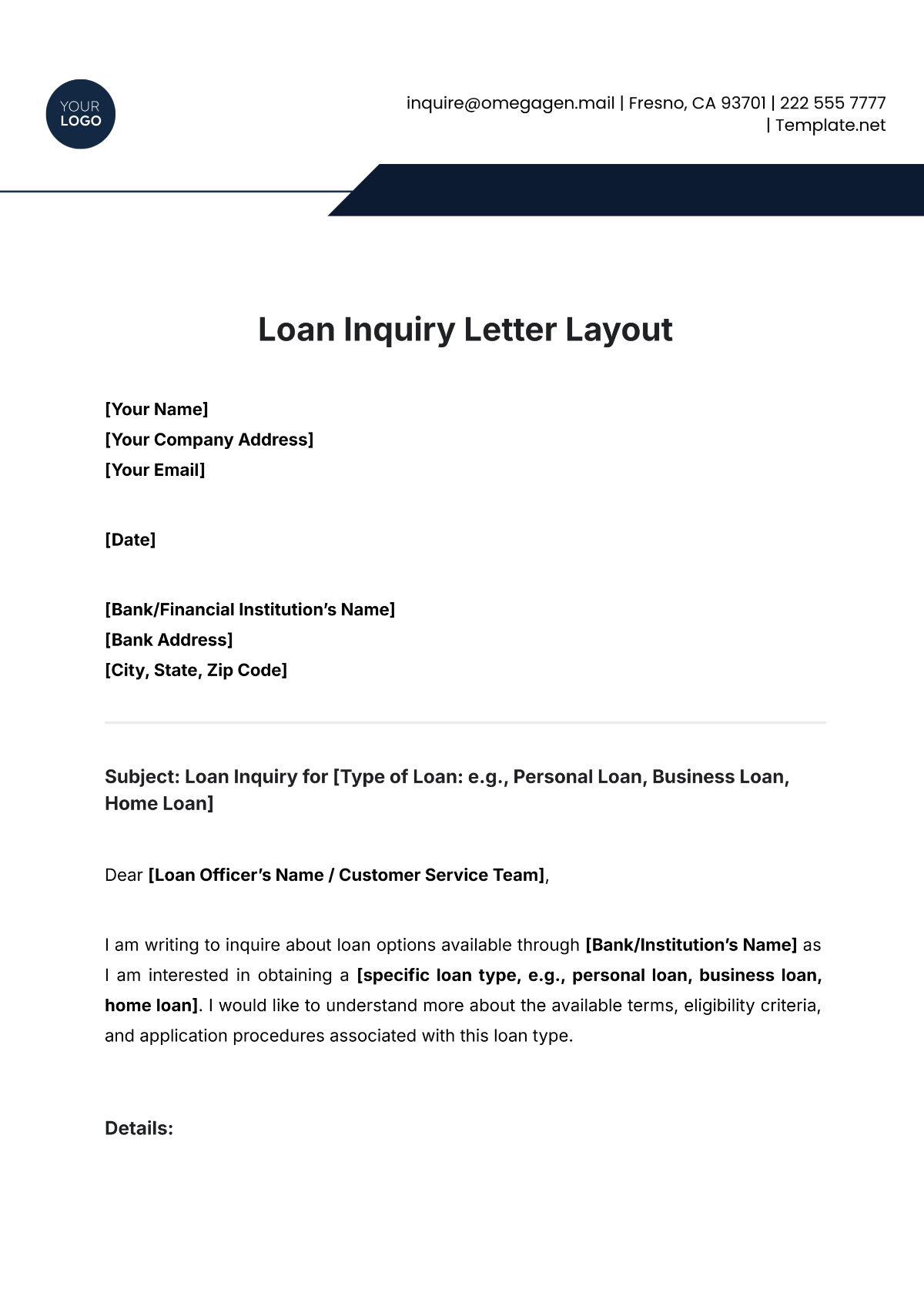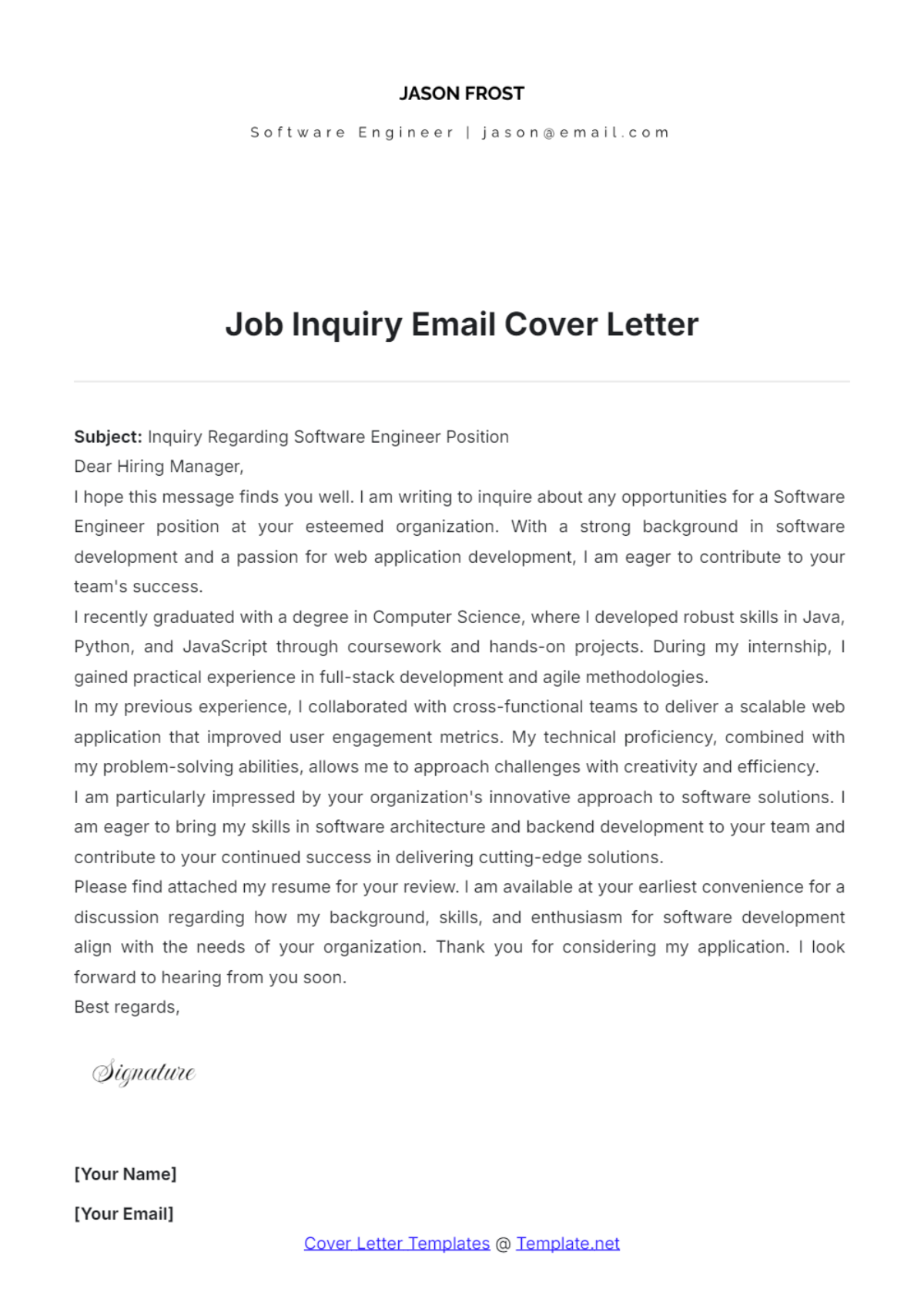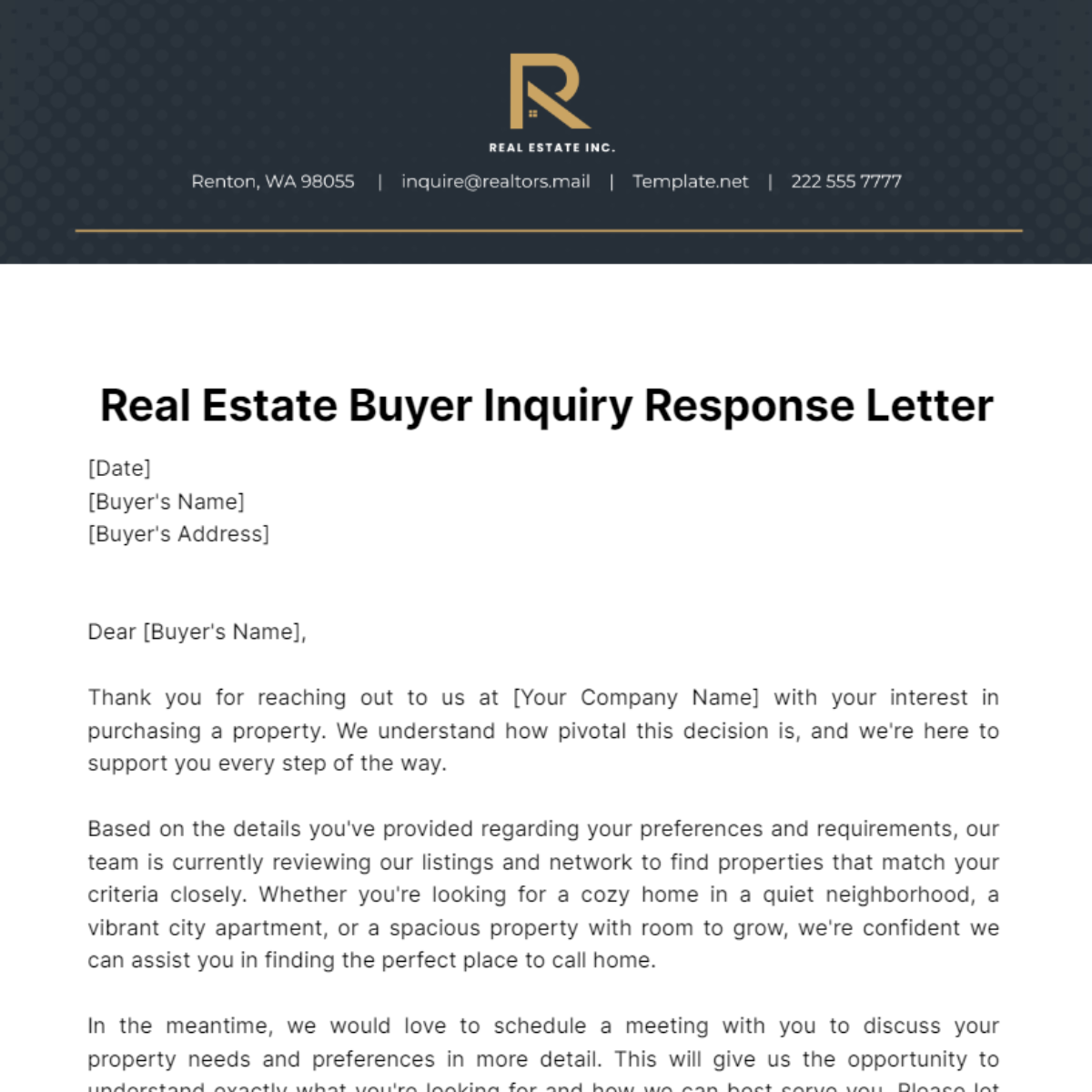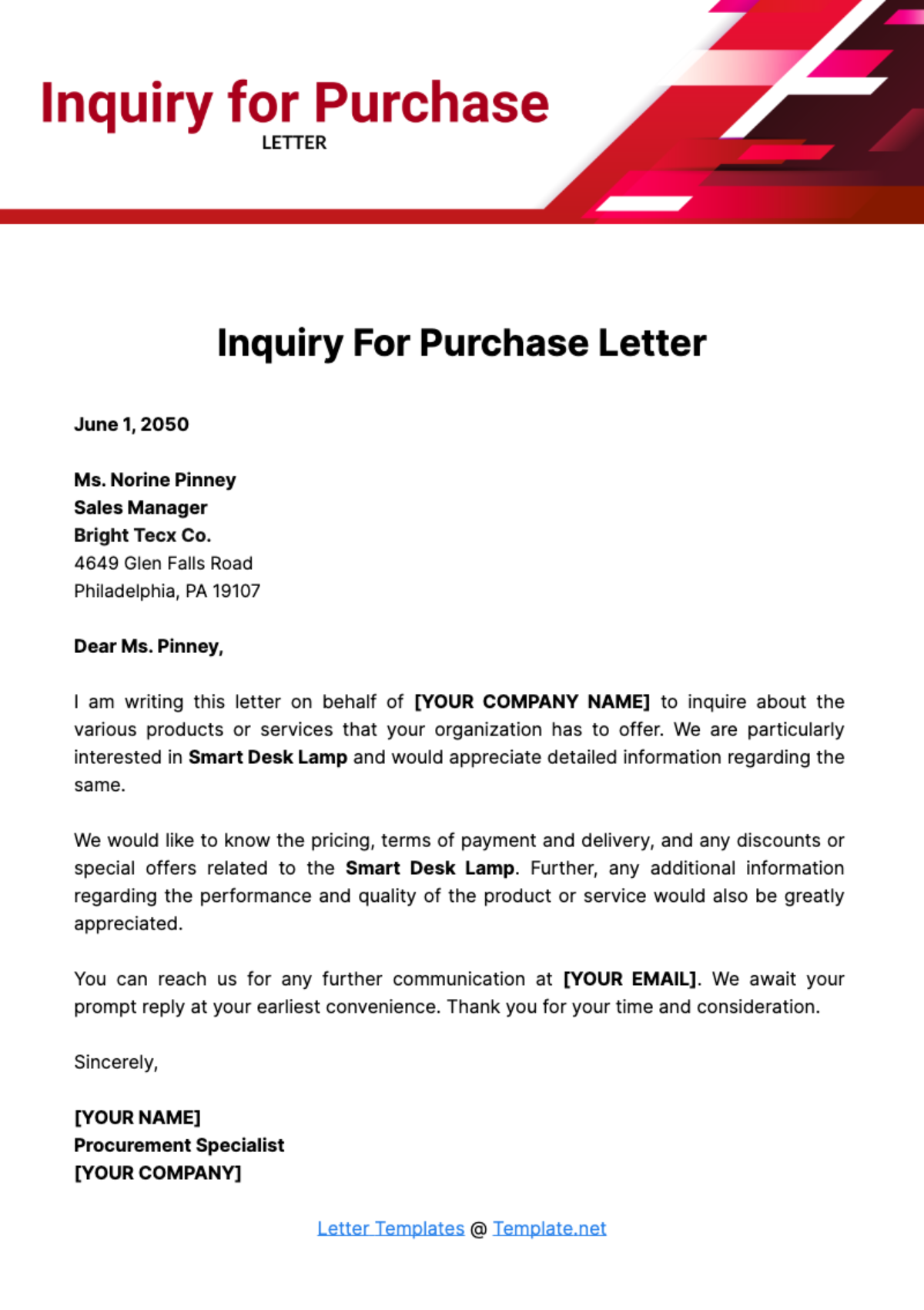Bring Your Communication to Life with Inquiry Letter Templates from Template.net
Keep your professional interactions engaging, streamline your correspondence, and achieve clarity with the Inquiry Letter Templates from Template.net. Perfect for professionals seeking efficiency, these templates allow you to effortlessly promote a sale or invite clients to an event while ensuring your messages are both impactful and polished. Each template is pre-filled with essential elements like contact info and placeholders for your unique details, eliminating any skill barriers. With professional-grade design and customizable layouts for various platforms, you can easily adapt these templates for print or digital distribution, all without the cost of a graphic designer.
Discover the many Inquiry Letter Templates we have on hand, tailored for all your communication needs. Begin by selecting a template that suits your style, then simply swap in your personal or company assets and tweak the colors and fonts to align with your brand. Add advanced touches like dragging-and-dropping icons, inserting animated effects, or utilizing AI-powered text tools to make your letter truly stand out. The possibilities are endless and skill-free, thanks to our user-friendly interface. With new designs added regularly, you'll never run out of fresh content to use. When you're finished, download your masterpiece or share it via a link, print, or email, making it ideal for multiple channels and allowing you to collaborate in real-time.












